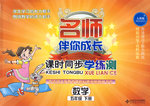题目内容
Scholars and researchers have tried to discover what personality characteristics go along with success in different cultural experiences. Their findings have often been unclear or incomplete. But three typical characteristics stand out in their reports: patience, a sense of humor, and the awareness of being unclear.
Patience, of course, is the ability to keep calm when things do not go as one wants them to, or as one hopes they would, or even as one was sure they would. Impatience sometimes brings improvements in relations with other people, but usually it does not.
A person with a sense of humor is less likely to take things too seriously and more ready to see the humor in his own reaction than a humorless person. The value of a sense of humor really needs to be paid more attention to.
“The awareness of being unclear” is a more difficult concept to understand than patience and a sense of humor. Foreigners often find themselves in situations that are unclear as they are newcomers. That is, they do not know what is happening in a certain situation. Perhaps they do not understand the local language well enough, or they do not know how some system or organization works, or they can’t be sure of different people’s roles in what is going on. “It’s like that I just got here from the moon,” a Chinese graduate student who newly arrived in the United States said. “Things are just so different here.”
1.The passage mainly tells us ______.
A. about some uneasy traveling experiences in foreign countries
B. about the three main ways to communicate with foreigners
C. about some typical characteristics in different cultural experiences
D. how to show your characters to foreigners
2.According to the passage, which characteristic should be focused on most?
A. The ability to keep cool. B. The sense of humor.
C. Patience. D. The awareness of being unclear.
3.“The awareness of being unclear” refers to “______” .
A. not knowing what is happening in a situation
B. not understanding the local language well enough
C. being aware that the situation is unclear
D. not knowing how some system or organization works
4.By what the Chinese graduate student said, we can learn that ______.
A. he is not used to the culture of America
B. he went to the United States to study the moon
C. he is a person with a sense of humor
D. he has just returned from the moon
1.C
2.B
3.C
4.A
【解析】
试题分析:本文讲述了和成功密切相关的三种个性特征。长期以来研究人员试图寻找成功和人的个性特征之间的关系,虽然调查结果不是很明确,但是毋庸置疑耐心,幽默和对于未知情况的认知在所有的报告中是最为突出的三个方面,其中幽默感尤其显著。
1.C主旨大意题。此文是总分的结构。在文章首段提出中心:人们试图找出和成功有关的个性特征,其中主要的是patience,a sense of humor和the awareness of being unclear等,然后分别介绍了这三个方面。所以C选项正确。
2.B细节理解题。根据文章第三段The value of a sense of humor really needs to be paid more attention to.中的“ more”可知幽默感比其他两个方面更值得注意,所以B为正确选项。
3.C推理判断题。本段开头提出The awareness of being unclear” is a more difficult concept to understand,随后列举一些情况进行解释说明,比如they do not know what is happening … Perhaps they do not understand ….., or they do not know……和 or they can’t be sure of different people’s,由此可知划线短语意思是“意识到情况的不确定性”,故C选项正确。
4.A推理判断题。从上文they do not know what is happening in a certain situation. …. or they can’t be sure of different people’s roles in what is going on.可知作者列举的都是人们感到一些不确定的情况,所以下文提出中国留学生的例子也是用来解释指对情况的不确定、不清楚的。故A选项正确。
考点:考查社会百科类短文阅读。

 名师伴你成长课时同步学练测系列答案
名师伴你成长课时同步学练测系列答案
11. The graduate never expected that his graduation essay would ______ such a heated discussion among scholars.
| A.set off | B.set about | C.set out | D.set up |